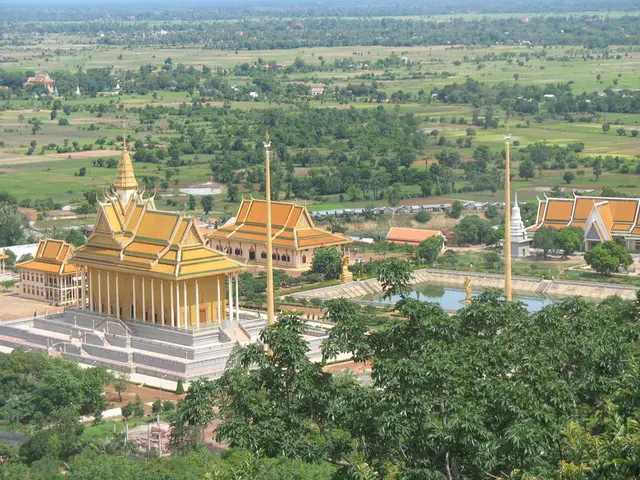Universities face accusations of inflating achievements before Trump's presidency
U.S. Universities and the Absence of Resistance against the Trump Administration
In the face of profound political change during the Trump presidency, one might expect U.S. universities—traditional breeding grounds for resistance and social movements—to take a more prominent stand. However, this was not the case.
Despite their historic role in resisting the Vietnam War and championing societal change, today's American universities appear to be conspicuously quiet. Where are the student body and faculty, often the driving forces behind such protests?
Homeland Security Minister Kristi Noem's rebuke of Harvard last week serves as a stark reminder of the university's role in the current political climate. The prestigious institution, according to Noem, fostered violence and anti-Semitism on campus, prompting the refusal of international student acceptance as a warning to universities nationwide.
This warning was heeded long before, as President Trump's tenure put immense pressure on institutions of higher education, resulting in strict action against dissenters. After Trump's inauguration, his administration froze research funds nationwide, controversially demanded structural reforms, and slashed funding for various programs.
Students report an atmosphere of fear, with more than half of teaching staff admitting to holding back on public statements due to the political climate. The question arises: why are the legal representatives of universities the only ones standing up for resistance, while students remain largely inactive?
The limited resistance displayed by students can be attributed to three factors. Firstly, Trump's crackdown on individual dissenters creates an atmosphere of uncertainty, making passivity seem the best approach. Secondly, the protests of the previous year took a significant toll on students' emotional and physical resources, leaving only remnants of what was once a powerful movement. Lastly, as New York protest researcher Robert Cohen suggests, the absence of a specific local target for protest dampens student activism.
While student protests against Israel's military operations in Gaza escalated in April 2024, accusations of anti-Semitism followed. Universities cleared the protest camps and expelled students, with the "New York Times" reporting over 3,000 arrests—a number surpassing that of the Vietnam War protests. Yet, universities remained on the defensive.
Elise Stefanik, a Trump loyalist, is allegedly the one who initiated the Clinton-style “triangulation” that pressured universities to suppress protests. In a committee, she repeatedly questioned Harvard President Claudine Gay and her colleagues about whether a call for genocide against the Jews violated the university's rules. The controversy led to Gay's resignation a month later, also due to emerging plagiarism allegations.
Trump's supporters played a critical role in stifling dissent, but Cohen notes they did not require Trump's explicit endorsement. On his first day in office, Trump enacted measures intended to suppress debate, such as the prohibition of inclusion programs, the termination of contracts, and the halt of funding for research. Recognizing the potential harm to both Harvard and the U.S., its new president Alan Garber stated that while the Trump administration's concerns were understandable, their solutions were "surprising."
Trump's administration's intolerance of dissent extends beyond universities, affecting law firms, media, and other institutions. According to Cohen, universities were never particularly free, with students having limited say, especially at private universities. In a sense, they were "Trumpified" before Trump even came into office.
For Cohen, Trump's attack on the university system is a deliberate exaggeration of an already weakened protest movement, as universities have long been popular targets for Republicans due to their liberal leanings. Cohen's research suggests that students, rather than mounting protests, will likely direct their energy towards supporting candidates who can defeat Trump's allies in the upcoming congressional elections.
In summary, the apparent lack of resistance from U.S. universities during the Trump era can be attributed to a combination of financial, legal, and cultural factors, as well as the political context of the time. The current political climate, along with fears of retaliation and legal and financial constraints, has contributed to the muted protest response from universities.
- The European Union, as a political entity, might find itself faced with a similar dilemma as U.S. universities under the Trump administration, where the fear of retaliation and financial constraints could hinder resistance against politically contentious issues.
- In the realm of education-and-self-development, it's crucial for students to recognize the importance of engaging in politics and standing up for their beliefs, even under challenging political climates, as the absence of such engagement in U.S. universities during the Trump presidency demonstrated.






